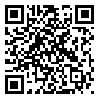BibTeX | RIS | EndNote | Medlars | ProCite | Reference Manager | RefWorks
Send citation to:
URL: http://journal.zums.ac.ir/article-1-5406-en.html


 , Farhad Taremian2
, Farhad Taremian2 

 , Saeid Momtazi3
, Saeid Momtazi3 
 , Mahdi Khani1
, Mahdi Khani1 

 , Zakaria Eskandari1
, Zakaria Eskandari1 

 , Alireza Armani Kian3
, Alireza Armani Kian3 
 , Behrouz Birashk *4
, Behrouz Birashk *4 


2- Dept.of Clinical Psychology, Substance Abuse and Dependence Research Center, University of Social Welfare and Rehabilitation Sciences, Tehran, Iran
3- Dept. of Psychiatry, Faculty of Medicine, Zanjan University of Medical Sciences, Zanjan, Iran
4- Dept. of Clinical Psychology, Faculty of Behavioral Sciences and Mental Health, Iran University of Medical Sciences, Tehran, Iran
Background and Objective: Generalized Anxiety Disorder (GAD) is one of the most common psychological disorders characterized by excessive and uncontrollable worry and it has ahigh comorbidity with other anxiety disorders and depression. The aim of this study was to compare the efficacy of metacognitive therapy (MCT), pharmacotherapy and neurofeedback treatment in treating Iranian patients with GAD.
Methods and Materials: 42 outpatients meeting DSM-5 criteria for GAD who had been referred to Sohravardi clinical psychology and psychiatry center in the city of Zanjan were chosen on the basis of convenient sampling and were randomly assigned into three treatment groups: metacognitive therapy (n=14), pharmacotherapy (n=14) and neurofeedback treatment (n=14). All patients in each group were treated for 8 weeks. The General Anxiety Disorder Scale (GAD-7) was administered blindly Pre and Post intervention.Alpha brain waves in the occipital area (O1 and O2) using neurofeedback (pro-comp-5) were registered Pretest and Posttest. Throughout the research, 36 patients remained in the study while 6 patients forfeited. The results were analyzed using ANCOVA, ANOVA, Kolmogorov–Smirnov test, ANOVA with repeated measures and post hoc test.
Results: The ANCOVA and post hoc results showed that neurofeedback, MCT and pharmacotherapy led to significant improvements in GAD-7. Also regarding alpha amplitude enhancement, the results indicated that neurofeedback led to a more significant increase when compared to MCT and pharmacotherapy.
Conclusion: It seems that neurofeedback is more effective than MCT and pharmacotherapy for the treatment of GAD and the results of this study confirm the effectiveness of O1-O2 protocol (alpha brain wave amplitude increase) in GAD symptoms severity improvement.
Received: 2018/11/11 | Accepted: 2018/11/11 | Published: 2018/11/11
| Rights and permissions | |
 |
This work is licensed under a Creative Commons Attribution-NonCommercial 4.0 International License. |



